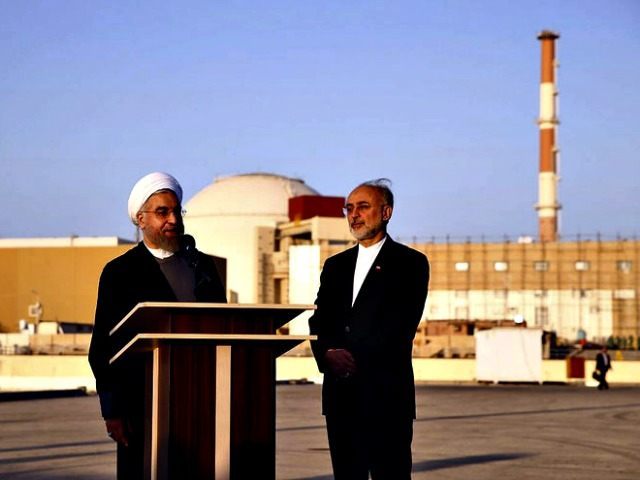Saudi Arabia, suspicious that the nuclear agreement that the U.S. and other world powers hope to reach with Iran would only delay the Islamic Republic from developing a nuclear arms, is considering becoming a nuclear-weapons power before Iran, reports The Wall Street Journal.
According to The Journal, the nuclear pact may set off an arms race that “would further destabilize what is already the world’s most volatile region, where the risks of a nuclear war would be compounded by the threat of radioactive material falling into the hands of terrorist groups.”
The Saudis worry that the current draft agreement would only put a 10-year curb on Iran’s nuclear program.
“For some of Iran’s regional rivals, that is also becoming a deadline for developing nuclear arms of their own,” notes The Journal.
“In Saudi Arabia, there are widespread public calls to match Iran’s nuclear quest,” it adds. “The two other Middle East heavyweights, Turkey and Egypt, could also feel compelled to follow suit, senior Western and Arab officials warn.”
The Saudis also fret that the nuclear deal does not include adequate safeguards, something that King Salman, in a speech at a summit of Gulf leaders in Riyadh this week, said, risks “plunging the region into an arms race.”
“We prefer a region without nuclear weapons. But if Iran does it, nothing can prevent us from doing it too, not even the international community,” Abdullah al Askar, a member and former chairman of the foreign affairs committee of Saudi Arabia’s advisory legislature, told WSJ.
“Our leaders will never allow Iran to have a nuclear weapon while we don’t,” added retired Saudi colonel and a security analyst in Riyadh Ibrahim al-Marie. “If Iran declares a nuclear weapon, we can’t afford to wait 30 years more for our own—we should be able to declare ours within a week.”
The Obama administration has emphasized that a nuclear agreement would make it unnecessary for Sunni nations like Saudi Arabia to develop their own nuclear program.
“U.S. officials also say that the alternative to this agreement is either war, with unpredictable consequences for the region, or an even faster development of an Iranian nuclear bomb accompanied by a likely collapse of the international sanctions regime,” reports The Journal.
Saudi Arabia does not entertain, as many in the West do, the notion that somehow Iran will become more moderate and responsible over a decade.
“Besides their fears of a nuclear Iran dominating the Middle East one day, they [Saudis] are fretting that the agreement would dramatically tilt the regional balance of power in Tehran’s favor already in the immediate future, especially once the removal of international sanctions revitalizes the Iranian economy and gives it access to more than $100 billion in frozen overseas assets,” reports The Journal. “They also increasingly distrust the U.S., the traditional guarantor of Gulf security.”

COMMENTS
Please let us know if you're having issues with commenting.